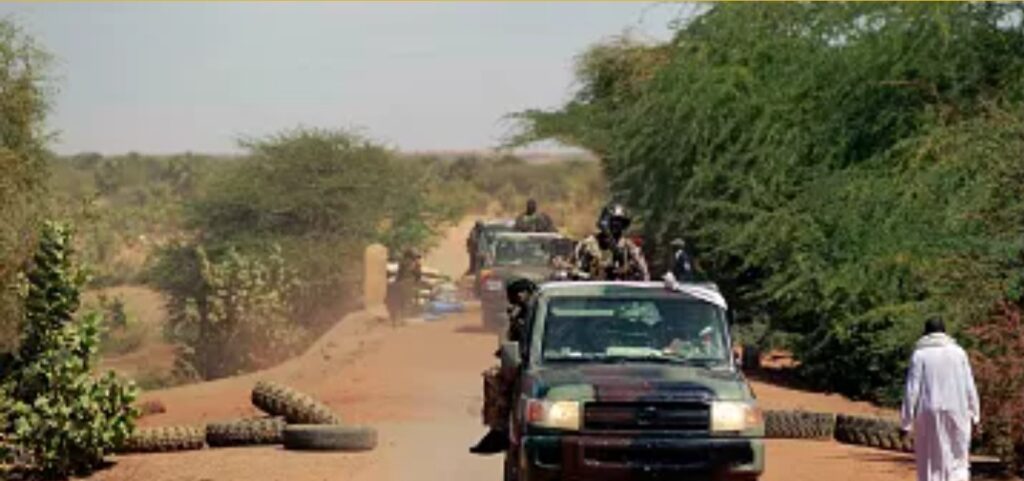
Ofure Akhigbe
Mali’s armed forces have intensified security operations along critical trade corridors linking the capital Bamako with Senegal, following an attempted blockade by al-Qaeda affiliated militants.
On Wednesday, convoys of fuel trucks and other commercial vehicles entering from Senegal were given full military escort to guarantee safe passage. The move comes after transport companies suspended operations last week when fighters from Jama’at Nusrat al-Islam wal-Muslimin (JNIM) began stopping and torching fuel trucks in a declared blockade on the capital.
In response, the army launched a major offensive in the western Kayes region, near the Senegal and Mauritania borders, deploying airstrikes and ground operations. Military officials claim the campaign has broken the militants’ siege.
The attacks mark the latest escalation in JNIM’s campaign to weaken the Malian state. Since May, the group has targeted local and foreign-owned businesses in Kayes, striking cement plants, sugar factories and mines operated by international companies including Barrick Mining and B2Gold.
Mali’s ruling junta, already under pressure from economic strain and insurgent violence, has sought to cut the militants’ influence by banning fuel imports from neighbouring countries.
JNIM is the most lethal of several armed groups active across the Sahel, a region stretching from North to West Africa that has become a flashpoint for extremist violence.
Regional security remains fractured. Mali, Burkina Faso and Niger quit the West African bloc ECOWAS after military coups and have since formed their own security pact, the Alliance of Sahel States, aligning more closely with Russia. But recent data suggests militant attacks have only intensified since the shift.
